This article needs additional citations for verification .(November 2022) |
List of ministers for public health of Uruguay since 1933:
This article needs additional citations for verification .(November 2022) |
List of ministers for public health of Uruguay since 1933:

Uruguay, officially the Oriental Republic of Uruguay, is a country in South America. It shares borders with Argentina to its west and southwest and Brazil to its north and northeast, while bordering the Río de la Plata to the south and the Atlantic Ocean to the southeast. It is part of the Southern Cone region of South America. Uruguay covers an area of approximately 176,215 square kilometres (68,037 sq mi) and has a population of around 3.4 million, of whom nearly 2 million live in the metropolitan area of its capital and largest city, Montevideo.
The General Agreement on Trade in Services (GATS) is a treaty of the World Trade Organization (WTO) which entered into force in January 1995 as a result of the Uruguay Round negotiations. The treaty was created to extend the multilateral trading system to service sector, in the same way the General Agreement on Tariffs and Trade (GATT) provides such a system for merchandise trade.

Tabaré Ramón Vázquez Rosas was a Uruguayan politician and oncologist who served as the 39th and 41st President of Uruguay from 2005 to 2010 and from 2015 to 2020. During his political career, Vázquez was a member of the Broad Front coalition. Before his first presidential term, Vázquez was president of the Club Progreso team and made two unsuccessful presidential bids in 1994 and 1999. He served as Intendant of Montevideo between 1990 and 1994 shortly before his first presidential campaign.

Uruguaiana is a municipality in the Brazilian state of Rio Grande do Sul. It is located on the eastern shore of the Uruguay River bordering Argentina. Opposite to Uruguaiana, and joined to it by a road/railway bridge, lies the Argentine city of Paso de los Libres, Corrientes. North of Uruguaiana lies the Brazilian municipality of Itaqui, connected by a bridge constructed by the British in 1888 over the Ibicuí River. The municipality also borders the municipalities of Alegrete, Barra do Quaraí and Quaraí, and, also, Uruguay, making it one of the few international triple-border municipalities of Brazil.

The Pan American Health Organization (PAHO) is a specialized agency of the United Nations (UN) in charge of international health cooperation in the Americas. It fosters technical cooperation among member countries to fight communicable and noncommunicable diseases, strengthen health systems, and respond to emergencies and disasters. It has 35 Member States and four Associate Members in the region. Headquartered in Washington, D.C., PAHO is the regional office for the World Health Organization in the Americas, and the health organization of the Inter-American System. It is known in Latin America as the OPS or OPAS.
A health minister is the member of a country's government typically responsible for protecting and promoting public health and providing welfare and other social security services.
Uruguay is the only country in Latin America that has achieved quasi-universal coverage of access to safe drinking water supply and adequate sanitation. Water service quality is considered good, with practically all localities in Uruguay receiving disinfected water on a continuous basis. 70% of wastewater collected by the national utility was treated. Given these achievements, the government's priority is to improve the efficiency of services and to expand access to sewerage, where appropriate, in areas where on-site sanitation is used.
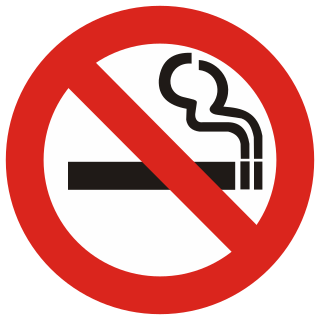
Smoking in Uruguay in enclosed public spaces became illegal on 1 March 2006. On that date, bars, restaurants or offices where people are caught smoking began facing fines of more than $1,100 or a three-day closure. Uruguay was the first country in Latin America to ban smoking in enclosed public spaces.
Prostitution in Uruguay was legislated in 2002 through the sex work law (17.515). Before that, prostitution was unlegislated but it was not illegal, since the constitution allows any activity that is not forbidden by law. Prostitution is currently not a subject of debate.

The following outline is provided as an overview of and topical guide to Uruguay:
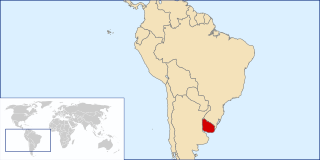
The following is an alphabetical list of topics related to the Eastern Republic of Uruguay.
Abortion in Uruguay is legal on request before twelve weeks of gestation, after a five-day reflection period. Abortion has been legalized in Uruguay since 2012. Uruguay is one of only four countries in South America where abortion is legal on request; the other three are Argentina, Guyana and Colombia.
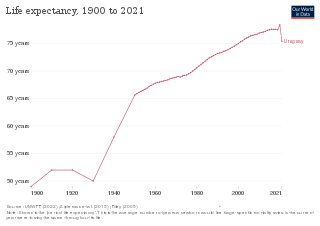
In 2016, the life expectancy in Uruguay was 73 for men and 81 for women.

The Philip Morris v. Uruguay case was an investor-state dispute settlement case initiated on 19 February 2010 and concluded on 8 July 2016, in which the multinational tobacco company Philip Morris International (PMI), whose head office is located in Lausanne, lodged a complaint against Uruguay that was resolved by international arbitration under the auspices of the International Centre for Settlement of Investment Disputes (ICSID).

The second Constitution of Uruguay was in force during the period 1918–1933.
The timeline of the COVID-19 pandemic lists the articles containing the chronology and epidemiology of SARS-CoV-2, the virus that causes the coronavirus disease 2019 (COVID-19) and is responsible for the COVID-19 pandemic.
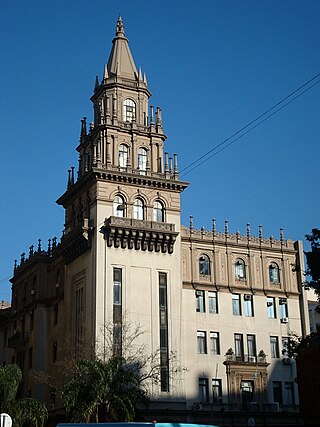
The Ministry of Public Health (MSP) is the ministry of the Government of Uruguay responsible for establishing public health policies and strategies, in order to contribute to the improvement of the health of the inhabitants of the Nation.
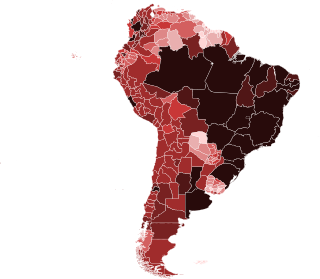
The COVID-19 pandemic was confirmed to have reached South America on 26 February 2020 when Brazil confirmed a case in São Paulo. By 3 April, all countries and territories in South America had recorded at least one case.
The COVID-19 pandemic in Uruguay has resulted in 1,037,893 confirmed cases of COVID-19 and 7,625 deaths.

Julio Daniel Salinas Grecco is a Uruguayan neurologist and politician of Open Cabildo (CA), who served as Minister of Public Health of Uruguay from 1 March 2020 to 13 March 2023.